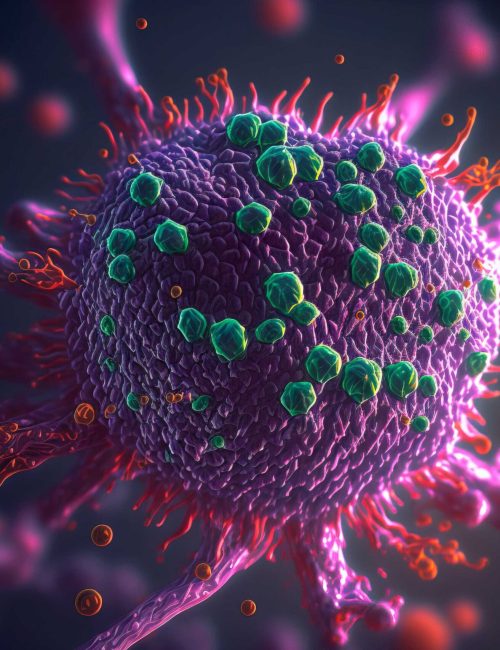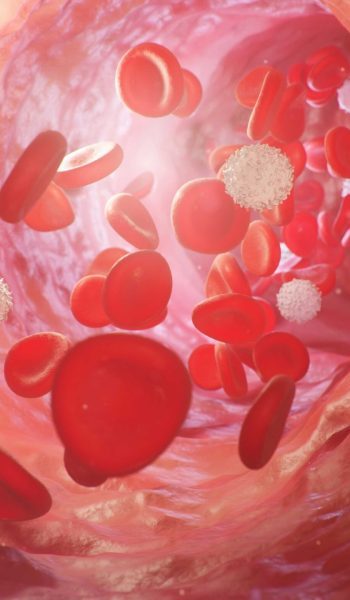Cancer Immunotherapy Treatment
Your Customised Treatment in Cancer
Dendritic Cells are cells of the Immune System that Help in the Fight against Cancer. Immunotherapy treatment is Customised Dendritic Cell-based Cancer Immunotherapy.
Immunotherapy
Cancer is No More the End. Today, Thanks to the Advanced Medical Technology, it is a Treatable Disease.
 1
1
Immunotherapy is personalized cancer medicine, which involves cancer fighting dendritic cells
 2
2
Immunotherapy is your additional & adjuvant treatment plan
 3
3
It is a targeted treatment plan. It targets the cancer cells only, without harming the normal cells.
 4
4
Being non-toxic, it does not interfere with the patient’s treatment plan or daily routine.
 4
4
Immunotherapyis not a drug; it is a process to rejuvenate the immune system, specifically against cancer.
How To Begin Your Denvax Treatment
Contact The Denvax Clinics Near You
Send the Patient's Reports through Email/Whatsapp.Your Appointment for Video or In-person consultation will be arranged once the doctors go through your reports.
Consultation with our Team of Doctors:
The patient’s condition is assessed during the meeting, and appropriate treatment is advised in prescription
Once you are ready for the Denvax treatment, blood collection shall be arranged from your home or one of our Denvax clinics.
Blood collected will reach Denvax Manufacturing Facility and Denvax preparation starts. This is considered Day 1 of the process.
After 10 days, the Denvax treatment is sent to your location or you receive it in the Denvax Clinic near you. This will be your first dose.
Once it reaches your home, it is administered to you by one of our trained technicians. Denvax is given as an IV infusion, under Ondansetron cover in 20 mts. Alternately, you can receive it in The Denvax Clinics under the supervision of nursing staff. (Denvax is safe for home administration, being a biologic, autologous and a non-toxic treatment.)
Your next dose will be given to you after 15 days from receiving your 1st dose. Your subsequent doses will be given in the same manner, at -15 days interval.
Cancer immunotherapy is an approach to defeat cancer, by unmasking cancer, unleashing the power of the
immune system and starting the fight, again. Cancer immunotherapy is often understood as a recent
discovery when in actuality it dates back to antiquity. Despite its long history, it has blossomed into fruition
only in recent years with the advances of multiple forms of treatment, including cancer vaccines, adoptive
cell transfer, chimeric antigen (CAR) T cell, and immune checkpoint inhibitors. The good part is that our
immune system has an amazing capacity for remembering disease-causing agents so immunotherapy
promises a unique opportunity to treat cancer successfully and achieve prolonged remission.
🔴 DENDRITIC CELL THERAPY FOR CANCER
Dendritic cells are cells of the immune system that help in the fight against cancer.
Cancer Immunotherapy Hospital is your personalized cancer treatment that involves cancer-fighting dendritic cells. Being autologous, it is non-toxic and does not interfere with an ongoing treatment plan or the patient’s daily routine.
Cancer Immunotherapy Hospital is a treatment for most solid tumors, including lymphoma and multiple myeloma. It can be given at any stage of the disease. It is targeted therapy and comes under the 4th modality of cancer treatment called cancer Immunotherapy. The other three are Surgery, Radiation, and Chemotherapy.
🔴 What Are The Types Of Immunotherapy?
Following are the types of immunotherapy treatment that doctors leverage to treat different types of cancer:
- Making substances inside a lab that are similar to the components of the immune system and using them to improve or restore the way your immune system functions in order to identify and attack cancer cells.
- Boosting or stimulating, the natural defenses of the immune system; therefore, it works smarter or stronger to identify and attack cancer cells.
- Advancement in technologies and medical practices has made immunotherapy one of the important treatments for certain cancer treatments.
🔴 How Does Immunotherapy Work?
In cancer, the immune system fails. As a result, the cells of the immune system fail to recognize the cancer cells. The immune system doesn’t “see” tumors as foreign or dangerous, and doesn’t mount a strong attack against them.
Another reason tumors may not stimulate an immune response is that cancer cells develop ways to escape the immune system.
A dendritic cell is a specialized cell that boosts immune responses in our body, by correcting the failure to recognize the cancer cell. The activated immune system then circulates throughout the body and destroys the cancer cells.
Immunotherapy Manufacturing

Immunotherapy Administration





Peripheral blood mononuclear







Immunotherapy Administration





Ready for Administration
Cancer Immunotherapy can be given in both home and hospital settings, as well as under the guidance of the treating physician.
Immuntherapy Helps to Prevent Relapse & Recurrence Provide Quality Life & Prolong Life
Immunotherapy provides quality life to Terminally ill cancer patients.
Immunotherapy helps to reduce pain and suffering in terminal stage patients. It improves quality life and provides palliation to stage IV patients.
Immunotherapy helps to Prevent Cancer Relapse and Recurrence
A cancer relapse occurs because in spite of the best efforts to get rid of cancer, some cancer cells are left behind. These cancer cells remain dormant for a period of time, but eventually they continue to multiply resulting in recurrence or relapse. Immunotherapy targets the micrometastasis the disseminated cancer cells responsible for the recurrence and relapse of cancer in treated patients.
Immunotherapy prolongs life
A large number of patients show prolongation of life and better clinical outcomes.


Our Experience, so Far
Different cancers behave differently, depending upon the stage and characteristics of the cancer, prior cancer treatments, immune responsiveness of the tumor
Patients having minimal tumor load (early stage patients/ recently operated, in whom tumor has been radically removed) show
(a) better results in preventing the recurrence of the disease, compared to patients with the full-blown disease, and
(b) the cure is possible in patients who receive the therapy at the appropriate stage.
Our experience of over 18 Years decade of using Cancer Immunotharepy Hospital in numerous cancer patients, shows a large group responding or benefitting from this treatment. The benefit can be seen mostly in the form of improved performance status (ECOG, or Karnofsky), improved symptom control, and improved progression-free survival.
A small group, among these patients enter into cure, where they turn repeat PET-CT negative. Overall survival is improved. Once they achieve this stage, we discontinue Cancer Immunotherapy Hospital after increasing the gap. Alternatively, we may put them on maintenance therapy, until they turn 3 times PET CT negative, conducted at 6 month- interval
There also exists a small group of patients, who do not respond to the therapy, and may experience no improvement. We are still to find definite answers for this non-responsiveness. For these patients we recommend discontinuation of the treatment
Most of the patients, receiving Cancer Immunotherapy Hospital are stage IV, metastatic disease patients. Among these, a large number are those having exhausted all modes of cancer treatment. Most of them have advanced disease.
Benefits of Choosing Immunotherapy


Treatment based on the revival of immunity against cancer


Non-toxic, being autologous (self-treatment)


Only cancer cells are
targeted




No interference with the patient’s ongoing treatment or daily routine


Additional treatment plan


Not a drug; it is a process to rejuvenate the immune system
What are
Dendritic Cells Immunotherapy?
A Dendritic cell is a special type of immune cell that boosts immune responses in our body, by showing antigens on its surface to other cells of the immune system.
In cancer, the immune system fails; cells of the immune system fail to recognize the cancer cells.
The immune system doesn’t “see” tumors as dangerous or foreign, and does not mount a strong attack against them.
Another reason tumors may not stimulate an immune response is that cancer cells develop ways to escape the immune system.
A dendritic cell is a special type of immune cell that boosts immune responses in our body, by showing antigens on its surface to other cells of the immune system.


How do Dendritic Cells Help Fight Cancer?
The dendritic cells identify cancer cells, process them into bits, and jump-start the immune response by bringing the cancer cells to attention. the rest of the immune system
The activated immune system then circulates throughout the body and destroys cancer cells.


Picture Courtesy: National Cancer Institute


Ralph Steinman
Nobel Prize Winner 2011
On his Discovery of Dendritic Cells
Discovery of Dendritic Cells
The dendritic cell was discovered by Ralph Steinman in 1973. Steinman, a physician-scientist at Rockefeller University, New York, thought of using these cells in fighting diseases including HIV and cancer. So when he was diagnosed with advanced pancreatic cancer in 2007, he decided to use his own dendritic cells in fighting cancer. With collaborators around the world, he designed therapies that made use of his own dendritic cells.
On October 3, 2011, Steinman shared the Nobel Prize in Physiology or Medicine for his work.
After a four- and half-year battle with cancer, he died three days before the award was announced.


